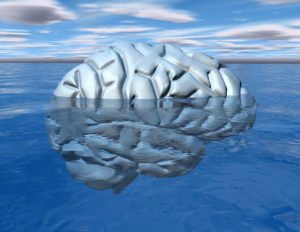
Harvard Medical School team leads pioneering gut-brain research
(This article further highlights the fact that your diet has a direct and measurable impact on the functioning of your brain. You, the being, receive thoughts, impressions, impulses, emotions and efforts from a variety of sources. Other people, the environment, electromagnetic frequencies, your body, all input stimulii you perceive. The better your diet, your environment and the people with whom you communicate, the more pro-survival the stimulii. – Tom)
You are not alone — literally. And in a way, you are also not entirely 100 percent human — from a cellular perspective. According to the National Human Genome Research Institute, the human body is host to approximately 10 times as many non-human microbial cells to human cells. There are 10-100 trillion microbiota (microbes) that live inside and outside the human body. The human microbiota includes fungi, protozoa, bacteriophage, yeasts, single-cell eukaryotes, viruses, and bacteria. The genes of the human microbiota make up the human microbiome. What influence, if any, does the microbiome have on the brain and behavior?
In a landmark 2018 study published in Molecular Psychiatry, a team of researchers from Harvard Medical School, the Broad Institute of MIT and Harvard, and the University of Toyama, found that “changes in gut microbiota can control brain insulin signaling and metabolite levels,” which in turn impacts neurobehaviors.
In the research study, the scientists discovered that mice fed a diet high in fat expressed increased depression, anxiety, and obsessive-type behaviors, compared to those on a standard diet. The mice with diet-induced obesity exhibited insulin resistance in the brain. The researchers attributed the increased behaviors that reflect anxiety and depression to “decreased insulin signaling and increased inflammation in the nucleus accumbens (a region in the forebrain) and amygdala (a section of the brain that is responsible for detecting fear and preparing for emergency events).”
The scientists then altered the microbiome of the obese mice with antibiotic treatment. The results were improved insulin sensitivity (both peripheral and central), and the reversing of the behavioral and mood disorders.
The researchers then transferred the microbiota from the obese mice that received antibiotics and those that did not, to germ-free mice that lack a natural microbiome. Only the germ-free mice that received the microbiota from the obese mice that did not receive antibiotics started to exhibit signs of increased anxiety and obsessive behaviors — leading the research team to conclude that the gut microbiome was a contributing factor. The scientists believe that unlocking the gut-brain relationship “may open novel approaches to treatment of mood and behavioral disorders” in the future.
